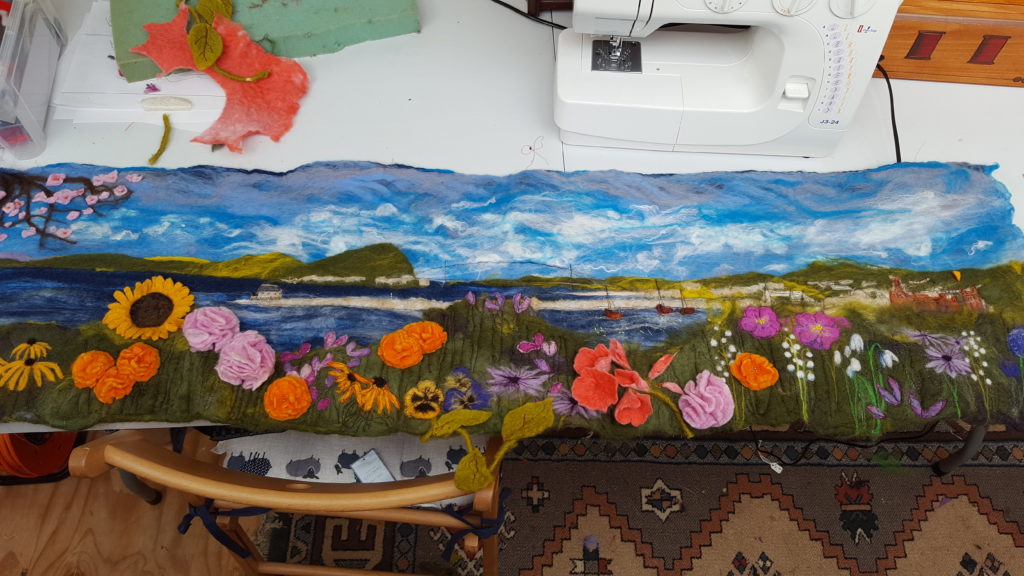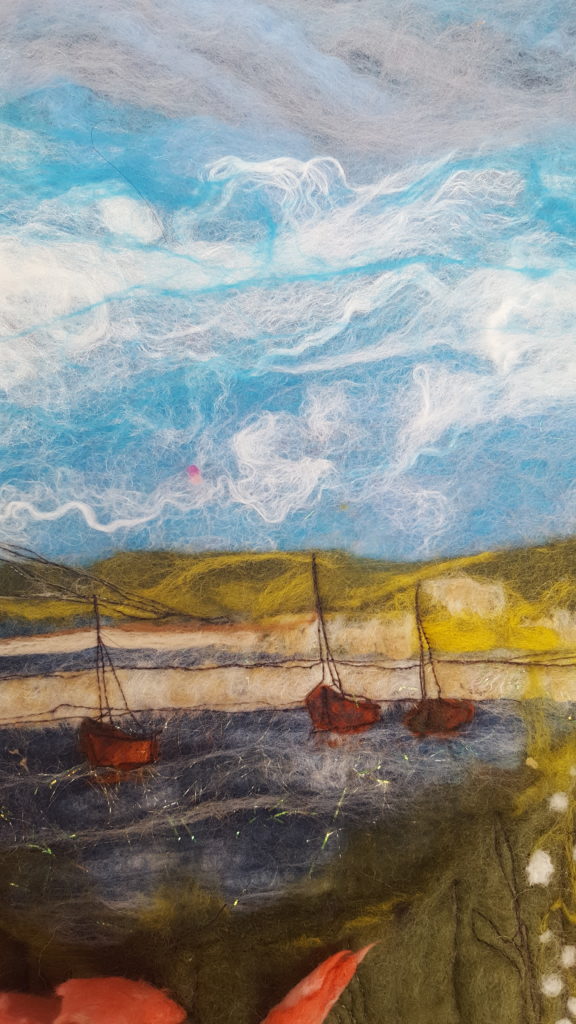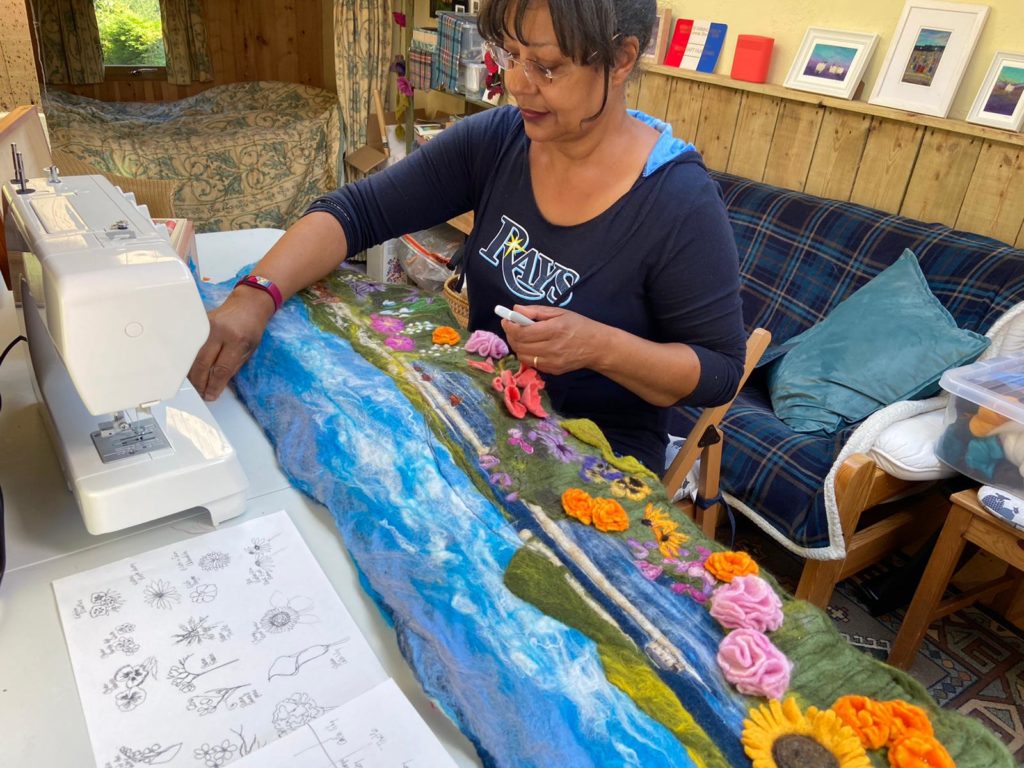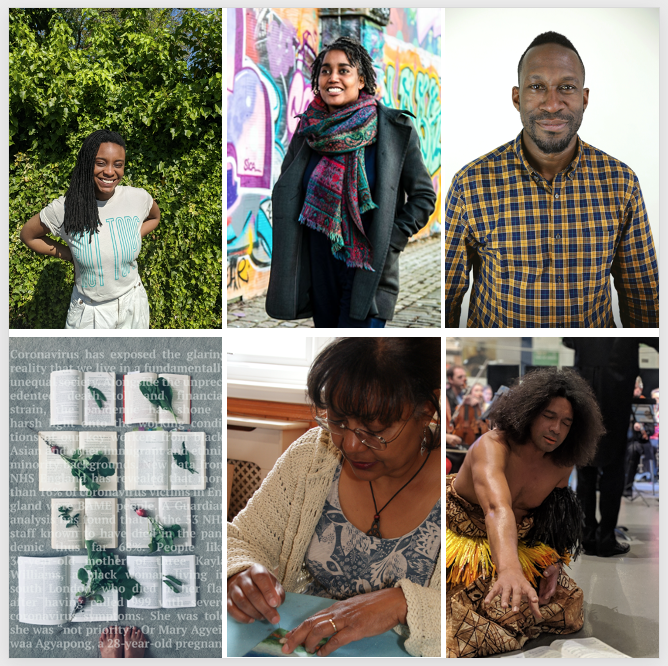
Fun Palaces has never before commissioned artists, not least because we believe everyone is an artist.
However, in the wake of the Covid crisis, in response to Black Lives Matter, and with a recognition that we want to do still more to encourage greater inclusion in Fun Palaces both as events and across all of our work, in 2020 we chose to commission a group of artists.
Our provocation was to consider how tiny revolutions of connection in community can help contribute to a more equal, inclusive, and generous society. We understand these tiny revolutions to be the core of our work and we asked six artists to interpret this idea in whatever way felt right for their work, for their art form and for the present moment.
The artworks encouraged others to take part in 2020’s 1000 Tiny Fun Palaces in a way that was safe for them and their community, maintaining the connections that have developed during lockdown. See below for information on the artists and the work they made.
Suriya Aisha (Manchester)
Party for 1000 Tiny Failures or Making Friendship with Failure from your Bed
Two workshops for sickbabes (women and non binary people who identify as being sick or disabled) to be together and discuss what it feels like to constantly ‘failing’ your own expectations.
Suriya ran two workshops helping people to reframe their experiences to celebrate failing. Being sick means you have to make friendship with failing. With always missing the mark. A process of constant adaptions of learning who you are and your own limitations. These fun and light hearted workshops were parties for our 1000 (plus) Tiny Failures.
Suriya Aisha is an Artist, Activist and Producer working in the cultural and community sector. Founder of UNMUTED– a network for LGBT people of colour in Birmingham and Co-Director of Colours Youth UK a youth LGBT organisation, she is passionate about creating spaces for the most marginalised communities. Suriya is the lead artist on the podcast @sickbabepod which gives voice to women and non binary people who live with invisible disabilities and chronic illnesses.
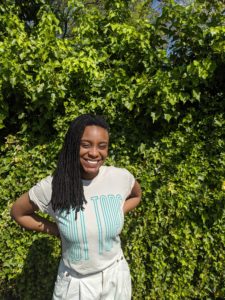
Suriya Aisha 
SickBabe podcast logo
David Ellington (Bristol)
A Z Alphabet in the Street
I have created a video giving an insight of what looks like to sign alphabetically (A- Z) with visual items in the public platform. It helps you to understand how it works by communicating with deaf members, who prefer using BSL (British Sign language) as visual communication.
David Ellington’s work includes film, theatre, and television drama and presenting since 1997. David has always enjoyed creative works including TV / film-making projects and theatre workshops, including running theatre courses for young Deaf and disabled students.
David founded VS1 Productions in 2007 paving its way to flourish numerous shorts, TV drama and documentaries that featured in British Sign Language (BSL).
This led David to earning a few tv/film awards for his outstanding and creative inputs. David created groundbreaking sign language performances for Channel 4’s Rio paralympics trailer as well as 3-minute advertisement in The Last Leg.
David has consulted with numerous arts organisations to raise awareness and engagement toward the Deaf community. He is currently involved in leading monthly events; Deaf Conversations About Cinema at Watershed, Bristol. He was awarded in Bristol’s 100 BME Powerlist 2018.
David has interest in aerial work, a discipline in which he admires the intense focus and challenge of aerial techniques. As a result, he has continued involving in Extraordinary Bodies productions – Weighting (2016) and What Am I Worth (2018/2020).
Sue Fraser (Inverness)
My Fun Palace was an opportunity for me to meet some of my neighbours for the first time and to show them how to have fun making felted soaps and covered stones.
Sue created a felted wall hanging depicting views from her street enjoyed by members of the WhatsApp group that she started at the beginning of the lockdown in March 2020. Every member of the group suggested a flower or plant that they would like to see in the finished piece. Neighbours joined the WhatsApp group by word of mouth and it became a focal point for sharing photos, news, stories and support for each other.
Sue also works with Highland Third Sector Interface as a Volunteer Development Officer and hopes that Third Sector organisations will take the opportunity to run Fun Palace community activities across the Highlands.
More of Sue’s work can be viewed at Facebook Sue’s Felted Landscape, Wooliebacks
Sue Fraser is an Inverness-based textile artist. Born south of the border to Jamaican parents, Sue grew up on Air Force bases before following in her Dad’s footsteps and joining the RAF as an Assistant Air Traffic Controller. After spending 17 years as a retail section manager, she joined the NHS working in mental health Occupational Therapy for 12 years.
It was while working at New Craigs hospital that Sue fell in love with the art of felting.
A colleague taught me how to make simple felted items so that we could run the activity in therapy groups, which proved to be really popular. I decided to combine this new skill with my love of art and manage to produce paintings made of merino wool and silk in bold Scottish colours with fine detail and texture.
Rabab Ghazoul (Cardiff)
One-Nine-One and One-Nine-Three
‘One-Nine-One and One-Nine-Three’ was a project about the hyper local; the individual closest to you – not because of familial or personal connection, but simply because they live next door. It was a project that took two unlikely people, who seemed to have little in common, who happened to be next-door neighbours, and asked: ‘What and where is commonality? Who do we understand ourselves to be, through the lens of our immediate neighbours?’
Rabab lives next door to Chris. Chris lives next door to Rabab. They are very different people. One is an artist and has ‘currency’ in terms of the visibility of her creativity. The other is not considered an ‘artist’ nor is he visible in terms of his creativity, despite having produced a cache of poetry and six novels. How do cultural systems privilege, legitimise and make visible certain kinds of creativity over others? What happens when two neighbours get together, to compare notes?
The project generated a series of conversations, reflections, dialogues and recordings, between Rabab and Chris.
Rabab Ghazoul is a socially engaged inter-disciplinary visual artist interested in exploring the performative and conversational, in relation to how we navigate power, places, identities and histories. Her work comes about in different ways: appearing as text, video, sound/song, installation and performance/public realm encounter, but more often than not, her artworks are conversations, lasting anything from a day to a year. Rabab sees her practice as an expanded realm of interaction, the ‘public’ realm, the realm of people, being her primary context. There is always some element of engagement, an invitation to participate. Whether organising a march, a choir, a walk, or a gathering, these activities are often questions to herself around what, in practice and in aspiration, words such as ‘community’, or ‘belonging’ might mean.
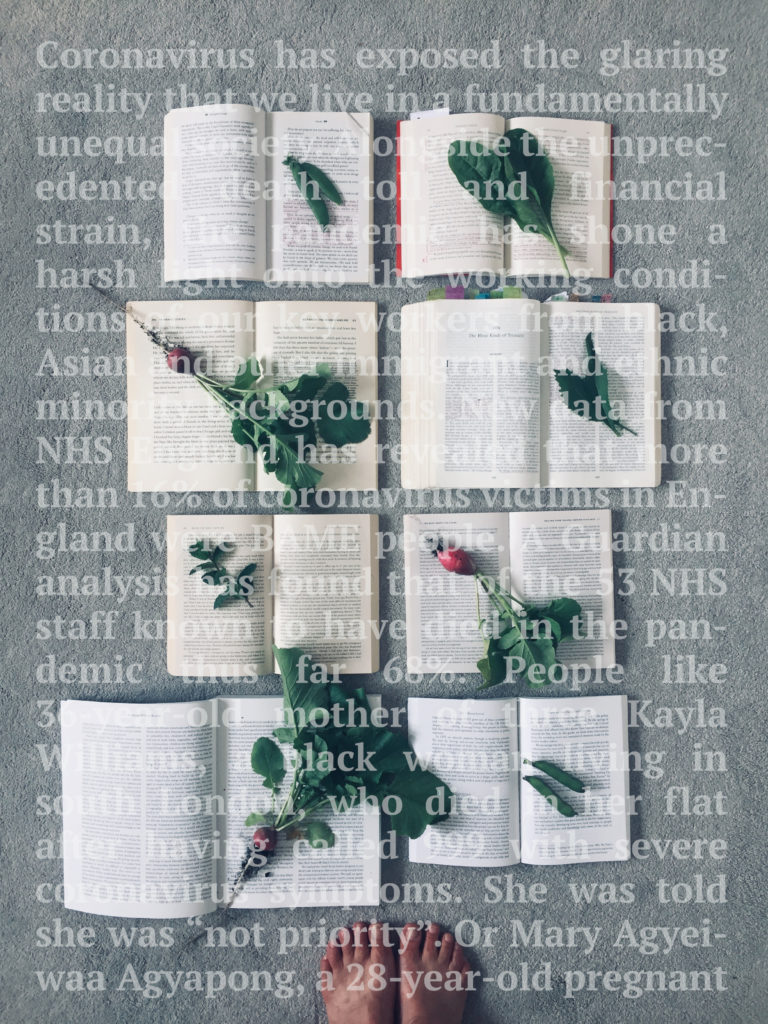
Sani Muliaumaseali’i (Rotoiti, Aotearoa/New Zealand & London)
Carpark Opera
‘It ain’t necessarily so’ is my call to action. My offering seeks to inspire people to walk away with questions. Who do we want to be in the post-covid world? In art, why does that content necessarily equal that form? And why not?
Through GAFA my culture Samoa informs my way of being in theatre. Our gender and race-neutral casting, our nourishment of the company, to how we treat a creative space are expressions of this. We are visible and thrive in a self-created space.
My work continued throughout lockdown, in a different way. Things were scaled down but the notions (and ambitions) remained enormous. The music, words, and movement of my tiny revolution will reflect the world as it currently stands, BLM, and smack of the Joan Littlewood who wanted to ‘blow up the National Theatre’ , for no real change can happen without the destruction of institutionalised harmful notions.
For my Tiny Revolution I produced a promo video for CARPARK Opera & Cabaret.
The promo was made at home, performed LIVE, and used whatever materials and resources that were available. The material that I used most was my resilience.
Resilience by nature is improvisation, it is experimentation, toughness and ultimately transformative. We will need all of these traits if we are to entertain any type of future.
All made at home, making work with what is available.
Sani Muliaumaseali’i is a London based Layered Art Exponent. He has appeared in Opera, film, TV and most forms of music theatre in many parts of the world. In 2012 Sani co-founded the Gafa Arts Collective London’s first Samoan arts collective. Sani has written, directed, and produced the following stage works for GAFA: A family called Samoa (2012) Kava Girls (2014) R’Otello the rugby opera (2015) Baba the bad Baboon (2016) Messiah Pazifik (2017) Talune (2018) Sunday MASSive (2018) .
Sani acknowledges his great teachers, who have included Nina Walker, Sir Donald McIntyre, Harry Coghill, Beatrice Webster, Anna Sims and Anna Sweeny.
Degna Stone (Newcastle)
A Manifesto of Tiny Commitments
Changing the world seems like a pretty big ask at the moment. But what if we take tiny steps? Read Degna Stone’s manifesto of Tiny Commitments below – and then follow her workshop steps to create your own!
Degna Stone is a poet and editor living in the north east of England. She shares her home near the River Tyne with two teenagers, her husband Dan and a chihuahua. Her latest poetry pamphlet Handling Stolen Goods is available from Peepal Tree Press.
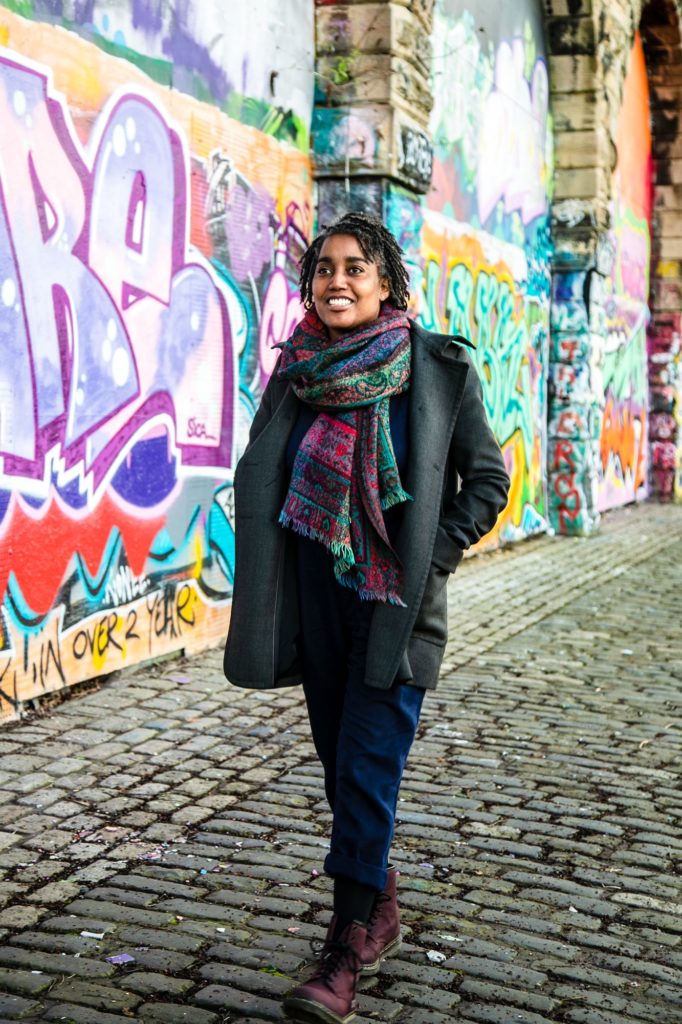
Download our mini-guide
Download our 1000 Tiny Fun Palaces mini-guide and share it offline with friends and neighbours.
COVID-19 Safety Guidance
See guidance on Safety during Covid-19
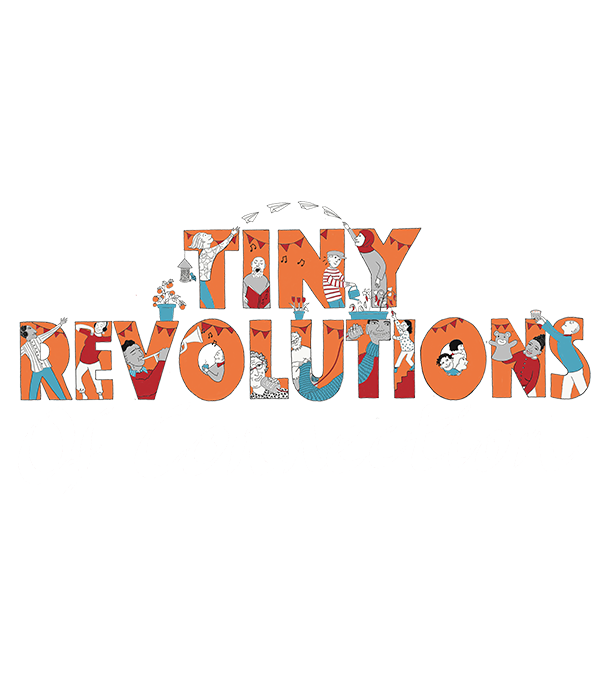
#TinyRevolutions
Sharing YOUR ideas for staying connected offline as well as online – connecting safely in community.

